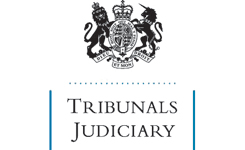|
Notes:
|
Reported as [2010] AACR 36.
Tribunal procedure – jurisdiction – strike-out provisions
Special educational needs – child for whom local education authority responsible – cessation of statement where child seeks provision under section 319 but meanwhile enrols at further education college
The appellant was the primary carer and person with parental responsibility for O, aged 16, who was severely dyslexic and dyscalculic. The local education authority had maintained a statement since 2005, in which the K Community School was named. In March 2009, following an appeal, the authority issued an amended statement, which continued to name the K Community School. O was at this point in Year 11 and the K Community School did not have pupils above Year 11. The appellant appealed against parts 2, 3 and 4 of the statement, contending that O should be placed at the Dyslexia Teaching Centre (DTC). The appellant’s advisers continued to pursue the appeal and O meanwhile enrolled in a further education college, effectively as a stop gap. Under Schedule 27 to the Education Act 1996, paragraph 9(1), a local education authority may not cease to maintain a statement except in accordance with paragraph 11, which provides for notice of decision and a right of appeal, but that is disapplied by paragraph 9(2) where a child has ceased to be a child for whom they are responsible. “Child” is defined in section 312 of the Act as including any person who has not attained the age of 19 and is a registered pupil at a school. The tribunal judge struck out the appeal under rule 8(3)(a) on the basis that O was no longer at a school and had therefore ceased to be a “child” within the relevant parts of the Act and the tribunal therefore did not have jurisdiction to hear the appeal. The appellant appealed to the Upper Tribunal. The Upper Tribunal judge proceeded on the assumption that the Upper Tribunal had jurisdiction to entertain an appeal against a decision to strike out under rule 8(3)(a) of the Tribunal Procedure (First-tier Tribunal) (HESC) Rules 2008, which was not disputed by the parties (and was held in [2010] AACR 35).
Held, allowing the appeal, that:
1. it is part of the ratio of R (Hill) v Bedfordshire County Council [2008] EWCA Civ 661; [2008] ELR 660 that for the purposes of paragraphs 9 and 11 of Schedule 27, an extended meaning of “child” applies and that it is not decisive that the local authority is not, at the material time, “responsible” for the child within section 321 of the 1996 Act (paragraph 32);
2. paragraph 108 of Hill is binding authority that where live issues between the parties remained and it was possible that, if an appeal went ahead, the tribunal might have made an order that special educational provision be provided by the local authority, that is sufficient to take the matter outside the scope of paragraph 9(2) (paragraph 34);
3. if the First-tier Tribunal judge was not applying Hill, but was rather relying on the mere fact of attendance at college as determining the issue, that was an error of law and if he was applying Hill, he was not entitled to conclude that there was no ongoing live issue, when the appellant was continuing to seek provision at the DTC for O (paragraphs 36 and 37);
4. enrolling at college was a sensible step so that O would be doing something useful with his time whatever the outcome of the various uncertainties and a tribunal should be very reluctant to infer that he was thereby acceding to the local authority’s proposals (paragraph 38);
5. the original direction in the First-tier Tribunal considered the possibility of an alternative basis of strike out under rule 8(4), but the Upper Tribunal was not asked to exercise it in the alternative and did not consider that it would be appropriate to do so (paragraph 43).
|
